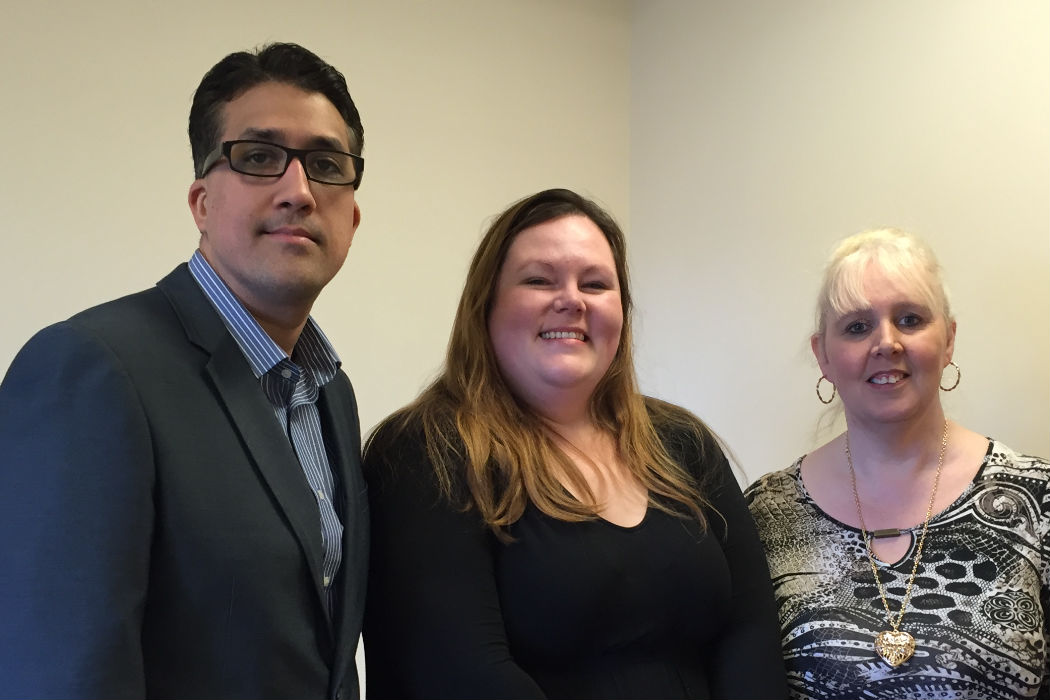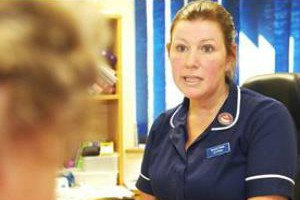
adam janjua and mh nurses
The problem
Fleetwood used to be a bustling fishing town, but has been in steady decline for 30 years, with high levels of unemployment, and drug and alcohol use. Our practice of 4,600 patients deals with the inevitable issues that this deprivation brings. Around 30% of our workload is mental health issues, meaning that we have struggled to deal with our patients’ other long-term conditions. Also, we were prescribing far too many antidepressants because patients sometimes had to wait 12-16 weeks for an appointment with a mental health specialist.
What we did
We are part of a federation of four practices, Fleetwood Community Care Limited, with 30,000 patients in total. The other three practices already had mental health nurses funded by the CCG so we applied for funding from the Prime Minister’s Challenge Fund (via a business case to the local CCG) to equalise mental health services across the federation – £50,000 for a 12-month period, with the assumption that we wouldn’t be fully staffed until six months in.
We employed two full-time mental health nurses in October last year and a third is about to start. When a GP sees a patient with depression, they undertake a risk assessment. If the patient is stable, they have a detailed assessment with a mental health nurse before we consider an antidepressant prescription. They are normally seen by the nurse within a week. We as GPs simply don’t have time to talk them through their problems (which are often social, caused by issues with their family, finances or jobs) and a 60-minute assessment with the nurse allows them to develop a rapport and deal with the underlying issues rather than us automatically prescribing antidepressants. If antidepressants are necessary, a GP will prescribe them at the nurse’s request. In this session, they also devise a management plan and then the patient has between four and 10 weekly follow-up sessions with the nurse.
The nurse may also refer them to online CBT, and we’ll soon be able to offer face-to-face CBT with our third mental health nurse.
Challenges
Finding suitable nurses was a challenge, as there is a general shortage of NHS staff in the UK, but we managed to recruit by advertising in the normal places like the NHS recruitment website. If there is a move to similar practice-based mental health nurses as described in the GP Forward View, it will probably be easier to transfer staff contracts from the hospital trusts to smaller neighbourhood practice federations. Funding was also an issue – the challenge fund money lasts until October, at which point we hope the CCG will fund the project.
Results
Previously, 80-90% of patients coming to us with depression or anxiety were prescribed antidepressants. Since we’ve had the mental health nurses, this has dropped to 30%. Also, around 20% of patients who were already on antidepressants have come off their medication after seeing the mental health nurse and opted for counselling only. The nurses have reduced the GPs’ workload by five to six appointments a day, which in a bigger practice would be equivalent to a whole session.
We now have happier patients, who are seen by a mental health professional much more quickly. Now they have one-to-one appointments and tailored care, from a practice that knows them, with their consultation notes documented directly onto our EMIS system. We also have more control over the treatment our patients receive and discuss them within the practice – I often have three or four brief chats a day with the mental health nurses. You don’t get this personalised care when the patients are seen outside the practice – you just get a letter several weeks later.
If someone has a crisis, they can get an appointment quickly with a mental health nurse in the practice, so hospital admissions should reduce.
The future
If other practices want to do something similar, I recommend planning in advance as the funding has to come from the secondary care provider’s budget, which will probably take 12 to 24 months to sort out.
Dr Adam Janjua is a GP partner in Fleetwood, Lancashire

















